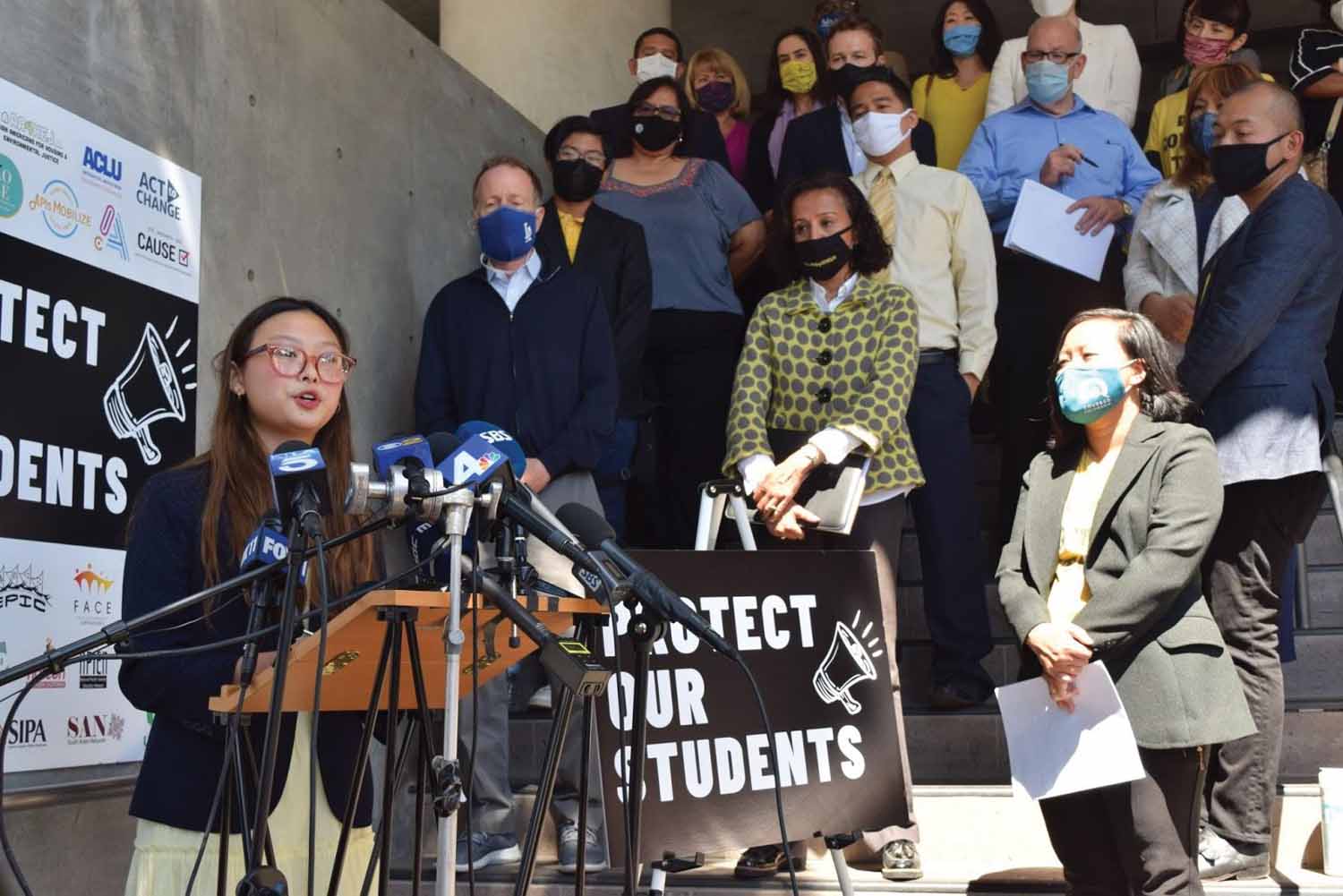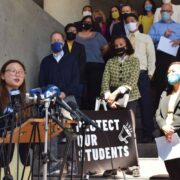
Increased anti-bullying trainings, mental health resources and other measures to take place as LAUSD reopens in fall 2021
AS public schools prepare for a total return to in-person teaching, a coalition of Asian American and Pacific Islander (AAPI) organizations is calling on the Los Angeles Unified School District (LAUSD) to take extra measures to protect students from anti-Asian harassment and bullying.
Earlier this week, Superintendent Austin Beutner of LAUSD (the nation’s second-largest school district) announced that its schools will return to regular five-day in-person learning in the fall, meaning that more AAPI — as well as Arab, Middle Eastern, Muslim and South Asian (AMEMSA) — students and school staff may be exposed to more racially motivated bullying, community organizations cautioned.
Beutner also mentioned that despite the imminent reopening of campuses across the district in the fall, students of all grades may still opt to learn online with teachers.
At the LAUSD headquarters in Downtown Los Angeles on Monday, May 24, Asian Americans Advancing Justice — Los Angeles (Advancing Justice — LA) hosted a press conference announcing new de-escalation and “restorative justice” measures designed specifically for anti-AAPI and anti-AMEMSA harassment.
“The safety and well-being of students continue to be the most important priority of [the LAUSD],” Beutner said at the press conference, noting the district’s efforts to organize a “safe return” to school amid the downtrending COVID-19 cases and hospitalizations.
“We recognize that a safe return for all cannot happen without the recognition of the rise of anti-Asian hate crimes and harassment over the past year and, in particular, the last several months,” he added.
According to Beutner, AAPIs comprise 20% of the overall LAUSD student body and that the district has already provided anti-bullying training for more than 1,500 staff and faculty members “to help them identify xenophobia.”
He added that the district will be doubling the number of mental health professionals in schools.
The coalition also pushed for increased anti-bullying training (with incentives and directives) that are designed with the help of AAPI and AMEMSA community organizations and established systems for reporting and addressing anti-Asian incidents with more “social-emotional” support solutions.
“When we say ‘protect our students’ we are not endorsing increased policing or punitive punishments. We do not support anything that hurts other communities of color. We are talking about increased resources in mental health and social-emotional support, language accessibility and any other forms of restorative justice practices,” said Donna Tang, education equity coordinator at Advancing Justice-LA.
Since March 2020, Stop AAPI Hate — a reporting center that has been tracking incidents of racism, xenophobia and discrimination against Asian Americans nationwide — has received more than 6,000 firsthand reports of anti-Asian bullying, harassment and violence.
As previously reported in the Asian Journal, Cal State San Bernardino’s Center for the Study of Hate and Extremism, using police data, found a 164% increase in reports of anti-Asian hate crimes in the first three months of 2021.
According to the coalition, because of this disturbing rise of anti-Asian hate crimes, parents are less willing to send their children to school.
“Every parent, regardless of background, should not have to fear bullying and harassment of their kids, especially at school,” said Jonathan Tiangco, Filipino American parent of an LAUSD student.
Another concern among coalition organizations is the lack of data disaggregation systems that would better capture the specific cultural needs of students of color.
In 2019, the LAUSD School Board passed the “Everyone Counts” resolution that allows parents and guardians to select up to five different race and ethnicity options when enrolling their children into LAUSD schools.
According to Advancing Justice-LA, which provided consultation for “Everyone Counts,” this enrollment system aims to disaggregate data by ethnicity so that schools can better cater to its racially and ethnically diverse student body.
However, only 1% of LAUSD students have been enrolled using the new system, and the coalition emphasized the importance of “full implementation of the Everyone Counts resolution.” n






